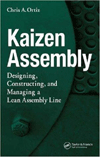The good news is that American fourth and eighth grade students improved their math and science scores in 2007. The bad news is that they continue to lag behind their peers from top-performing Asian countries.
The good news is that American fourth and eighth grade students improved their math and science scores in 2007 from those in 2003 and 2005, according to the results of the most recent Trends in International Mathematics and Science Study. But the bad news is that they continue to lag behind their peers from top-performing Asian countries.
Fourth-graders in Hong Kong were top performers in math, while U.S. fourth-graders ranked 11th. At the eighth-grade level, students in Taiwan ranked first; U.S. eighth-graders ranked ninth. Results were much the same in science. Students in Singapore ranked first at both the fourth- and eighth-grade levels, with American fourth-graders ranking eighth and eighth-graders 11th respectively.
“Despite decade after decade of reform efforts, our public K-12 schools have not improved,” says Louis V. Gerstner Jr. Writing recently in The Wall Street Journal, Gerstner, a former CEO of IBM, says that while individual schools and some entire districts have advanced, the system as a whole is failing. He points out that high school and college graduation rates, and the number of graduates majoring in science and engineering, are flat or down over the past two decades.
Gerstner’s prescription for improvement is fourfold. First, set high academic standards supported by a rigorous curriculum. Second, improve the quality of teaching and support this with substantially higher compensation for our best teachers. Third, measure both student and teacher performance systematically. Fourth, increase the time on task with more time in school and a longer school year.
But Alan P. Braun, M.D., president of the Somerset County Vocational and Technical High School District Board of Education, Bridgewater, NJ, says Gerstner omitted one major element if there is to be any chance of success. That is the inflexibility of the National Education Association on increasing time on task and, especially, the tenure issue, which doesn’t “allow” school leaders to remove underperforming teachers.
Enter, stage left, Michelle Rhee, who recently said, “Tenure is the holy grail of teacher unions, but it has no educational value for kids; it only benefits adults.” Rhee is chancellor of the Washington, D.C., schools, arguably the lowest performing school district in the nation. She is working to change that. According to The Wall Street Journal, she closed 23 failing schools, restructured 27 more, and fired nearly one-third of the district’s principals over the past 18 months. Furthermore, she dismisses as “complete crap” the argument that students can’t learn because of disadvantaged backgrounds.
This summer, Rhee offered a new teacher contract proposal with two options. Teachers could choose to nearly double their pay by 2010 in exchange for giving up tenure, or take a smaller pay increase and still lose some seniority. Predictably, negotiations with the Washington Teachers Union have collapsed.
We wish Rhee, and others like her, every success. For if they fail, not only will we be failing our children, we’ll be failing our future.
Editorial: Failing Our Future
Looking for a reprint of this article?
From high-res PDFs to custom plaques, order your copy today!



